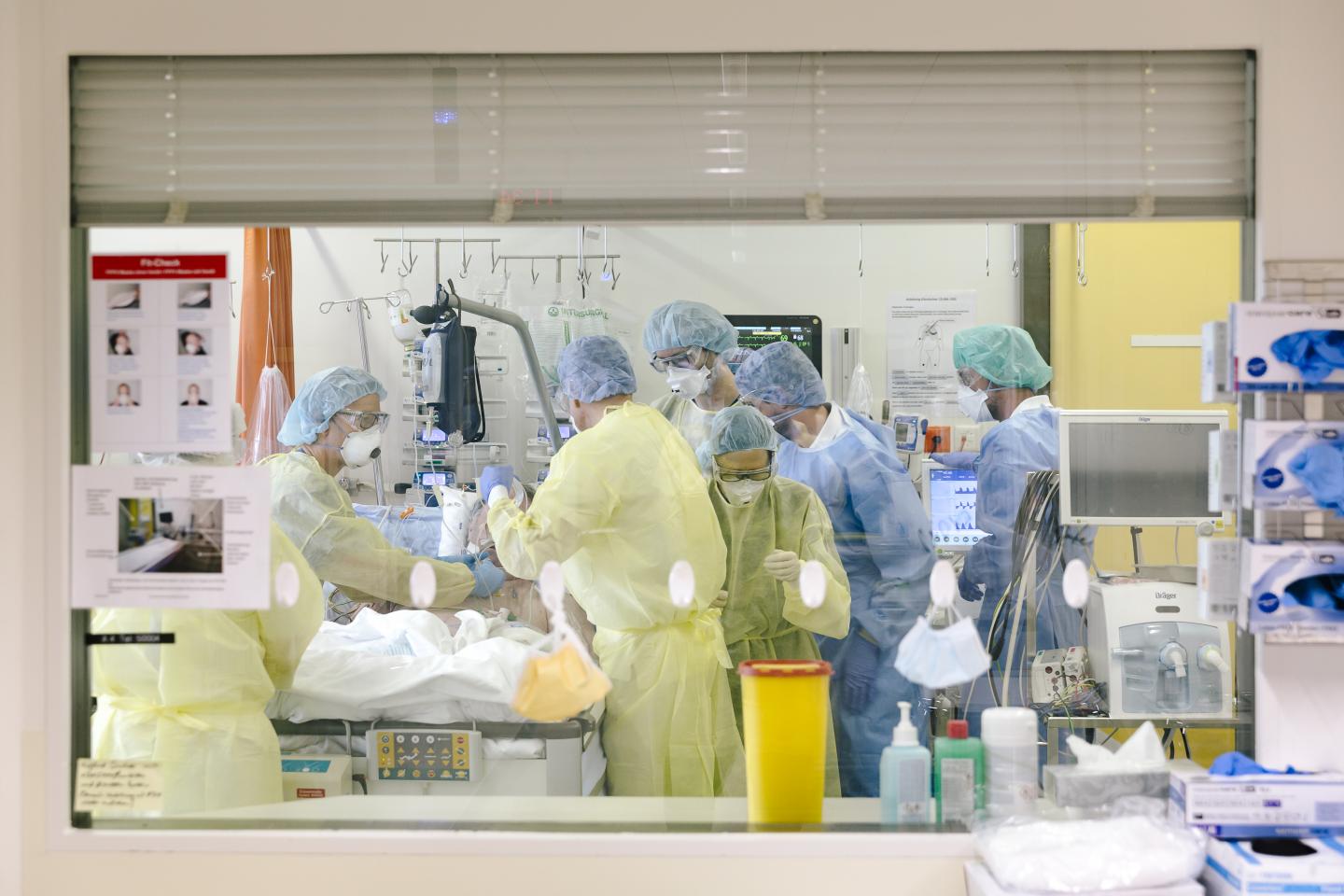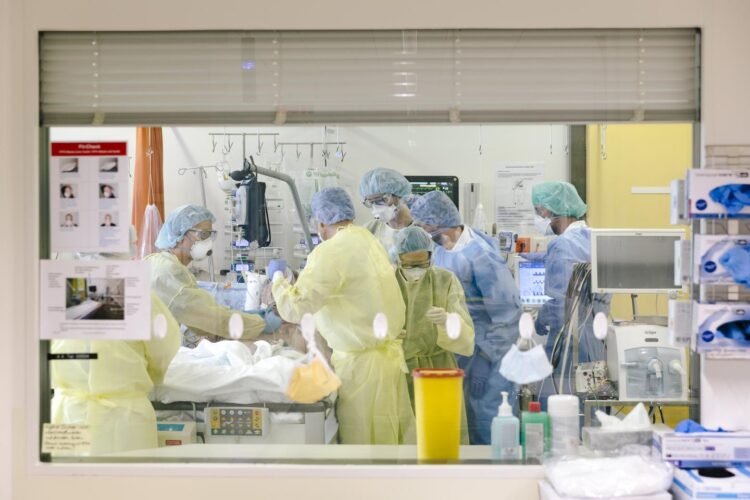
Credit: University Hospital Basel, Fabian Fiechter
Lopinavir is a drug against HIV, hydroxychloroquine is used to treat malaria and rheumatism. Until recently, both drugs were regarded as potential agents in the fight against the coronavirus SARS-CoV-2. A research group from the University of Basel and the University Hospital has now discovered that the concentration of the two drugs in the lungs of Covid-19 patients is not sufficient to fight the virus.
In February 2020, a Covid-19 patient cohort was established at the University and the University Hospital in Basel to prospectively monitor a range of diagnostic means and potential treatments for Covid-19, including the off-label use of hydroxychloroquine and lopinavir/ritonavir.
A research group prospectively monitored lopinavir plasma levels in Covid-19 patients. “Considering that substantial inflammation was observed in these patients, and previous studies have shown the inhibition of drug metabolism by systemic inflammation, we had the rationale to investigate the effect of inflammation on lopinavir and hydroxychloroquine plasma levels,” states Professor Catia Marzolini, first author of the study and professor for experimental medicine at the University of Basel.
The authors included 92 patients in their study. Professor Parham Sendi, who is the co-leader of this study summarizes the main findings as follows: First, lopinavir plasma levels were more than two to threefold higher than typically observed in HIV patients. Hydroxychloroquine levels were with normal range. Second, there was a significant correlation between the inflammation marker levels in the blood and lopinavir plasma levels. Third, when the inflammation was blocked with the Interleukin-6 inhibitor Tocilizumab, lopinavir plasma levels were significantly lower than the ones in patients without Tozulizumab treatment.
These results clearly indicate that drug metabolism enzymes (cytochrome P450 3A) are inhibited by systemic inflammation. “Caution is advised when prescribing CYP3A4 substrates such as Lopinavir/ritonavir or any other drug with a narrow therapeutic index to Covid-19 patients because of the risk of elevated drug levels and related toxicities,” the authors state.
Importantly, from the lopinavir and hydroxychloroquine concentrations in the plasma, the study group calculated the corresponding concentration in the lung compartment – the anatomic site of SARS-CoV-2 infection. The results strongly suggest that it is unlikely that both drugs reach sufficient concentrations to inhibit the virus replication in the lung.
WHO accepted the recommendation from the Solidarity Trial’s International Steering Committee to discontinue the trial’s hydroxychloroquine and lopinavir/ritonavir arms on 4 July 2020. Professor Manuel Battegay – co-leader of this study and head of the Division of Infectious Diseases and Hospital Epidemiology at the University Hospital in Basel – mentioned that the results provide important pharmacological and antiviral insights to the rationale of discontinuing the lopinavir/ritonavir arm. In fact, they add scientific reasoning why hydroxychloroquine and lopinavir are not effective against the SARS-CoV-2.
###
Media Contact
Prof. Dr. Catia Marzolini
[email protected]
Original Source
https:/
Related Journal Article
http://dx.





